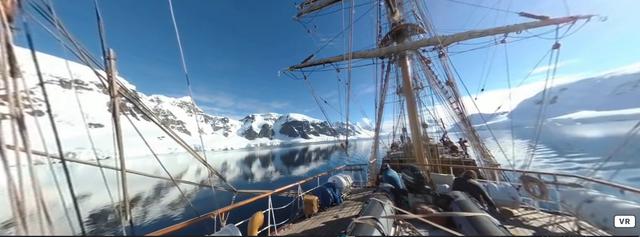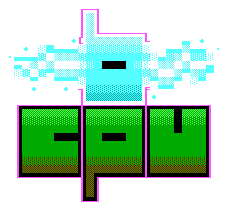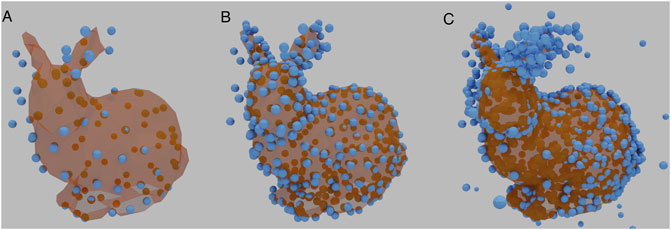
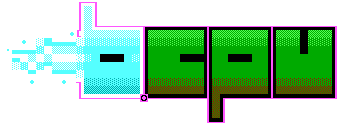
The following is a list of the projects I'm most proud of; the ones I feel best represent my work.
The major part of my PhD work involved reconstructing 3D models of biological structures from 2D microscopy images, using A.I. We published our work in the Frontiers Journal in 2021. The source code for the program HOLLy is available on github.

When I was working at the Sea Mammal Research Research Unit(SMRU) at the University of St Andrews, my main project has been to see if we can spot sea mammals using sonar. Using a combination of bespoke software and a PyTorch based neural network, we managed to spot moving objects of various sizes with a high level of accuracy and low false positive rate. I spoke about our work at EMF 2024.
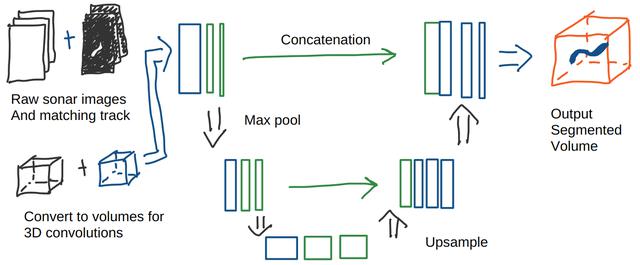
My MRes thesis was my first foray into deep-learning and A.I. Sequences appear a lot in biology, as you might expect. A and C and T and G, or ASP, GLY, VAL, PRO and many others. Looking for patterns in this data is half of the battle. Looking for patterns in the mountain of data is a herculian task. No wonder we are trying to teach machines to look for patterns. In my work, I'm trying to look for patterns in sequences of amino acids. It's not clear whether or not the sequences themselves have any patterns on their own, but it's worth a look.
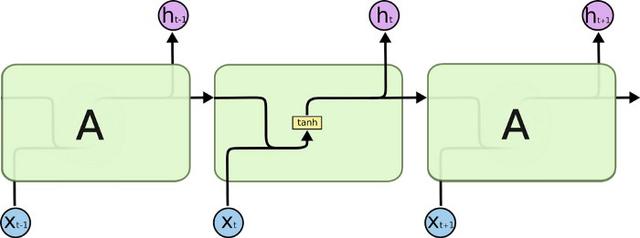
Electromagnetic Field 2018, the best science, hacking and making festival in the world has just happened. There are a few ways that EMF can be described - my personal favourite is 'the meeting of the clans'. Every two years, the nerds and geeks gather to discuss, present and bring their A game. We find out what we've all been working on and thinking about whilst we've been apart. This year, I was honoured to help out my friend Charles Yarnold with the Cybar and NullSector - a themed area that housed a bar, nightclub, art gallery and market space. The idea was to go full-on cyberpunk, making a space similar to Glastonbury's Block-9.
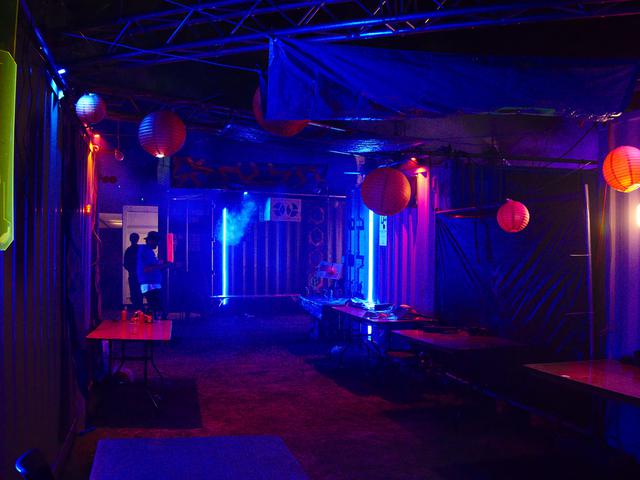
In 2020 I made my first ever demo! I've been threatening to do so for ages now, but since the lockdown hit, I've really had no excuse not to. For these of you unfamiliar with the demoscene, it's a small, yet internationally recognised subculture revolving around computer art. Some of the best programmers and artists produce works for all sorts of computers and electronic equipment, pushing the machines and themselves to the very limit! There are demoscene parties taking place all over Europe (and some further afield). I entered NOVA this year - the UK's main demoscene party, and had great fun doing so.
Since we are both nerds, my fiancee and I wanted some sort of nerdy aspect to our wedding and we figured that the invite itself was the best thing to work on. It allows for a few of our family and good friends to get in on the action and it's a little more interesting than just a paper slip. It's something you can keep and modify after the event.
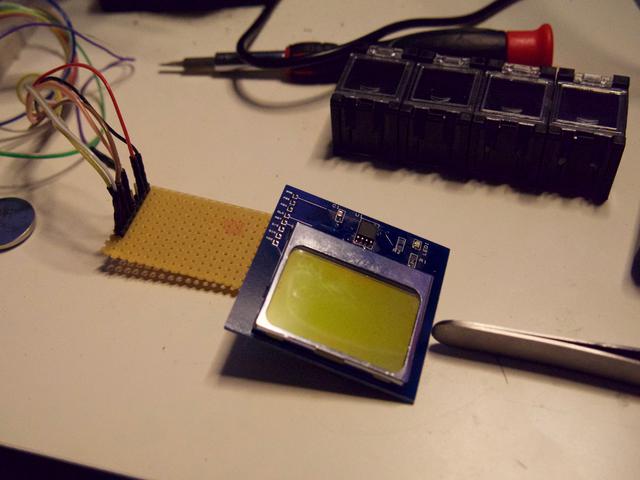
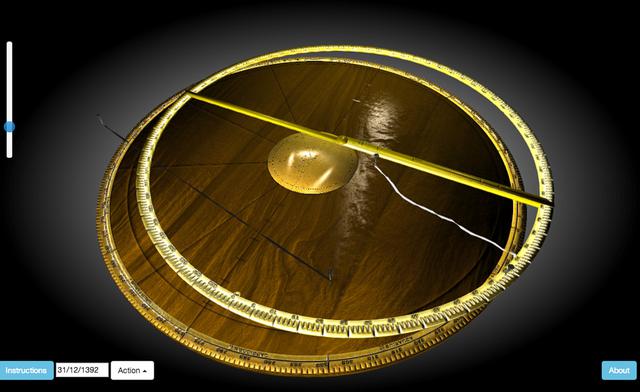
When I first met the lady I would eventually marry, she told me that she'd started work on a book about a collection of calculators. For various reasons, over the next few years, the project would lay dormant. When the pandemic hit and the UK went into the lockdown, we decided to spend the time to finish the book and get it published. The book covers the collection of Francis Hookham, held at the Whipple Museum of the History of Science in Cambridge. Back in the day, Francis Hookham realised - rather insightfully I think - that calculators wouldn't be around for very long, so he started collecting them. Eventually, his collection became too large, so he bequeathed it to the museum.
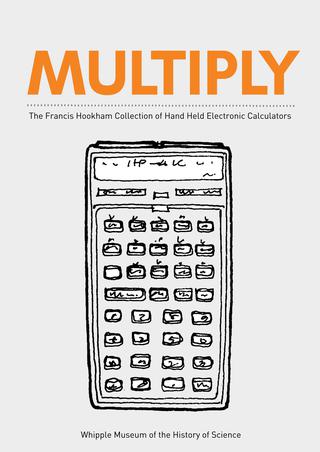
For Revision 2022 - the world's largest demoparty - my friend Will Flux and I entered the Wild Category with a demo of our own - a completely unique FPGA board running a short visual and audio treat. Completely designed in Verilog and unlike other demos we used no libraries, no code, not even a CPU! We didn't even use a development board. Everything was made from parts we bought from places like Farnell and Mouser. This is a short blog post on how we went about it.
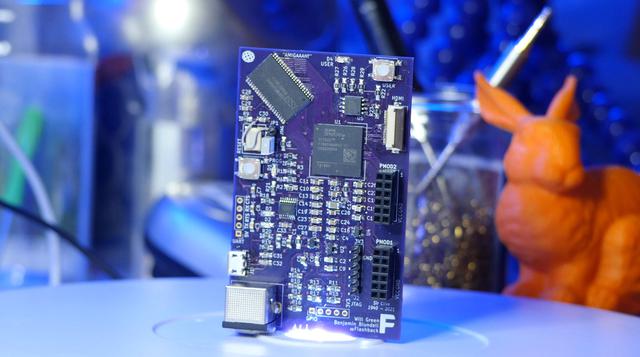
At the beginning of the pandemic, there seemed to be a spate of virtual tours, popping up all over the internet. At the time, it seemed like a good idea, though many seemed not to be very popular for very long. Nevertheless I thought I'd jump on the bandwagon and try my hand at making something similar. I figured I'd post all my 360 Antarctica videos in a sort of tour-format and see if anyone was interested.
